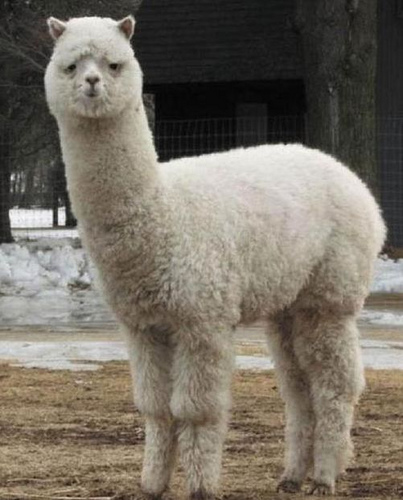[Warning: This post contains adult language!] There is little doubt that the current Internet clean-up, under the guise of an “anti-vulgarity campaign,” is the most vicious crackdown in years. Not only are porn sites targeted, but countless sites, including online discussion forums, blogs, and instant messaging groups, which touch on current affairs and other political topics have also been shuttered. How do Chinese netizens really think and feel about such state online policing efforts?
Not too long ago, a survey found that of the Chinese citizens interviewed, “almost 85% say they think the government should be responsible for [managing and controlling the Internet].”
But how about if we listen to netizens’ own expression instead of looking at checked boxes on survey questions? The following music video has become the newest hit in Chinese cyberspace in the past few days (at the time of writing (Feb 8, 2009), there are more than 12,400 posts online mentioning “The Song of ‘Grass Mud Horse (草泥马)’” ), lyrics translated by CDT:
There is a herd of Grass Mud Horses*
In the wild and beautiful Ma Le Desert**
They are lively and intelligent
they are fun-loving and nimble
They live freely in the Ma Le Desert
They are courageous, tenacious, and overcome the difficult environmentOh lying down Grass Mud Horse
Oh running wild Grass Mud Horse
They defeated river crabs*** in order to protect their grass land
River crabs forever disappeared from Ma Le Desert
在那荒茫美丽马勒戈壁
有一群草泥马,
他们活泼又聪明,
他们调皮又灵敏,
他们自由自在生活在那草泥马戈壁,
他们顽强勇敢克服艰苦环境。噢,卧槽的草泥马!
噢,狂槽的草泥马!
他们为了卧草不被吃掉 打败了河蟹,
河蟹从此消失草泥马戈壁
* Grass Mud Horse (草泥马) is phonetically equivalent to “Fuck Your Mother!” in Chinese
** Ma Le Desert (马勒戈壁) is phonetically equivalent to “Your Mother’s Cunt”
*** “River Crab (河蟹) ” is phonetically equivalent to “harmony (和谐).” Chinese netizens say their deleted posts have been “harmonized,” or “eaten by the river crab.” So “river crab” became a code name for internet censors.
A blogger from Tongji University wrote the following analytical piece on the “Big Dipper” blog, translated by CDT:
The Song of “Grass Mud Horse (草泥马)” : A Public Metaphor
One talented person invented the word “Grass Mud Horse (草泥马),” then another created a spoof called “The Song of the ‘Grass Mud’ Horse.” In the anything-goes world of the internet, this alone is just a small thing. But the fact that the whole online crowd discovered this song, is singing it loudly, and takes it as their own language as a way to express themselves, is really something.
As a metaphor, everyone understands what “Grass Mud Horse (草泥马)” really means. It’s a curse that is not so appropriate for public use. But we all have the impulse to express such emotions, and therefore use the alternatives “Grass Mud Horse (草泥马)” and “Ma Le Desert (马勒戈壁).” Now “the Song of the Grass Mud Horse” appeared and has become so popular, because the meaning of such a metaphor really resonated deeply with us. Probably because this song reflected the popular psychological sentiment, it naturally became a hit.
In the song, “Grass Mud Horse” was living freely in the beautiful Ma Le Desert (马勒戈壁). but their survival faces a crisis, because the arrival of river crabs destroyed the grasses they rely on to live. What should Grass Mud horses do?
Here, the conflict between two forces is very apparent.
“Grass Mud Horse (草泥马)” originates from a dirty sentence, and its original meaning is quite offensive. But in this song, Grass Mud Horse became the representation of a charming and vulnerable animal and the singer gives them his/her sympathy.
“Grass Mud Horse (草泥马)” is not an uncivilized word and is not officially banned, therefore it can be sung publicly. Although many people use “Grass Mud horse” as an alternative curse or just use it randomly, this word and its deviant expression already generated a pattern of discourse and sub-culture. “Grass Mud Horse (草泥马)” represents such information and opinions which cannot be accepted by the mainstream discourse, and “the Song of the Grass Mud Horse” has become a metaphor of the power struggle over Internet expression.










